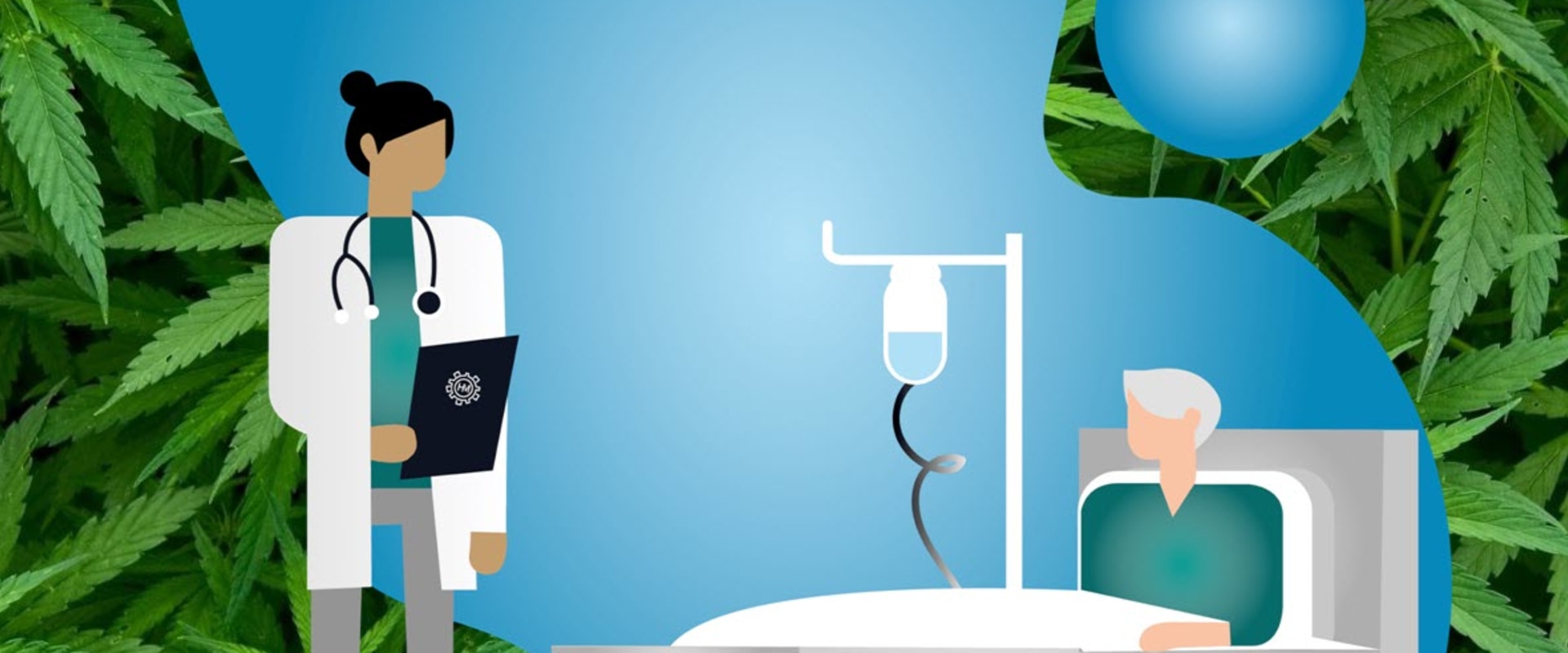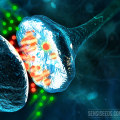Chemotherapy can be a difficult experience for many cancer patients. It often comes with a range of unpleasant side effects, such as nausea, fatigue, and pain. Fortunately, THC may be able to provide relief from some of these symptoms. THC, or tetrahydrocannabinol, is the psychoactive component of cannabis and has been used for a variety of medical purposes.
In this article, we will explore how THC can be used to alleviate chemotherapy symptoms and improve the quality of life for cancer patients.
Relieving Chemotherapy Symptoms with THC
Chemotherapy is a common treatment for cancer that can cause a range of side effects, including nausea, vomiting, and pain. In recent years, THC (tetrahydrocannabinol) has been identified as a potential tool to help patients relieve some of the most common symptoms associated with chemotherapy. This article will explore the potential benefits of using THC to relieve chemotherapy symptoms, as well as the safety considerations and resources available for patients.Potential Benefits of Using THC to Relieve Chemotherapy Symptoms
THC is one of the active components of marijuana and is responsible for producing psychoactive effects. It works by binding to cannabinoid receptors in the central nervous system and modulating the release of neurotransmitters, such as dopamine and serotonin.This can have a number of therapeutic effects, including reducing nausea, vomiting, and pain. There is evidence-based research that supports the efficacy of using THC to relieve chemotherapy symptoms. THC can be administered in a variety of ways, including smoking, vaporizing, oral ingestion, topical application, and suppository. Each method has its own advantages and disadvantages, and it is important for patients to discuss their options with their doctor before trying any method. It is also important to be mindful of dosage when using THC for medical purposes, as it can interact with other medications and cause adverse effects if used inappropriately.
Safety Considerations When Using THC for Medical Purposes
In addition to potential drug interactions, there are other safety considerations when using THC for medical purposes.For example, THC can have addictive properties when used in high doses over long periods of time. It can also lead to impaired motor skills, short-term memory loss, and paranoia in some users. People who have a history of mental health issues should consult their doctor before using THC.
Accessing THC for Medical Use
In many states, medical marijuana is legal and accessible with a doctor’s prescription. However, it is important to note that each state has its own laws and regulations regarding the use of medical marijuana.It is also important to note that not all doctors are willing to prescribe medical marijuana due to potential legal ramifications. Therefore, it is important for patients to do their research before attempting to access THC for medical use.
Resources for Patients Looking for More Information on Using THC for Medical Purposes
There are many resources available for patients looking for more information on using THC for medical purposes. The National Cancer Institute provides information on the safety and efficacy of using marijuana for cancer-related symptoms. The American Cancer Society also provides information on the uses of medical marijuana and its potential side effects.Additionally, many states have organizations that provide information on the legal aspects of using medical marijuana.
Additional Resources
For those who are interested in learning more about using THC to relieve chemotherapy symptoms, there are a variety of resources available. One of the best places to start is by talking to a doctor or healthcare provider who is knowledgeable about medical marijuana. They can provide information on the potential benefits and risks associated with using THC and can help patients decide if it is an appropriate treatment option for them. In addition to consulting with a doctor, there are many online resources available that offer information on using THC for medical purposes. The National Cancer Institute’s website has a wealth of information on the potential benefits of cannabis use for treating cancer-related symptoms.The American Cancer Society also provides detailed information on cannabis use for cancer patients, including information on how to access medical marijuana in states where it is legal. Finally, there are many organizations dedicated to providing support and information to those dealing with cancer. The Leukemia & Lymphoma Society’s website provides links to helpful resources, including information on how to access medical marijuana in states where it is legal.
Safety Considerations When Using THC for Medical Purposes
Using THC for medical purposes, such as to relieve chemotherapy symptoms, requires careful consideration of potential risks. It is important to be aware of potential drug interactions, potential for abuse or misuse, and side effects associated with using THC. Drug interactions should be taken into account when considering the use of THC for medical purposes.As THC is metabolized by the liver, it can interact with other medications and affect their efficacy. Patients should always consult their doctor before taking any new medications, including THC, to avoid any potential interactions. Another important consideration is the potential for abuse or misuse of THC. As with any drug, there is a risk of abuse or misuse when using THC for medical purposes.
Patients should be monitored closely and any changes in behavior or symptoms should be reported to a doctor immediately. Finally, side effects associated with using THC should also be taken into account. Common side effects include dry mouth, red eyes, dizziness, and increased appetite. Additionally, in some cases, THC can cause anxiety and paranoia.
It is important to discuss any potential side effects with your doctor before using THC for medical purposes.
The Potential Benefits of Using THC to Relieve Chemotherapy Symptoms
THC, or tetrahydrocannabinol, is the primary psychoactive component of the cannabis plant. THC works in the body by binding to the endocannabinoid system, which is responsible for regulating a variety of biological processes such as inflammation and pain. In recent years, research has suggested that THC can be used to reduce nausea and vomiting associated with chemotherapy, as well as provide relief from pain and other symptoms. A number of studies have found that THC is effective in reducing symptoms related to chemotherapy.A 2011 study found that patients who used THC experienced a significant reduction in nausea and vomiting compared to those who did not. Other research has found that THC can reduce pain associated with chemotherapy, as well as improve appetite and sleep. THC can be administered in a variety of ways, including orally, through inhalation, or topically. Oral administration is the most common form of administration, as it has been found to be the most effective. However, inhalation and topical administration can also provide relief from chemotherapy symptoms.
Overall, research has found that THC can be an effective tool in helping to reduce symptoms associated with chemotherapy, such as nausea, vomiting, and pain. It is important to note that all forms of THC administration should be discussed with a doctor prior to use. Additionally, it is important to understand that THC is a psychoactive compound and can have potential side effects if used in excess.
Accessing THC for Medical Use
In order to access THC for medical use, it is important to be aware of state laws and regulations regarding the use of THC. Although the use of medical marijuana is becoming more widely accepted in many states, there are still restrictions on who can legally obtain and use it.For example, some states require a doctor’s prescription in order to obtain medical marijuana, while others may allow individuals to purchase it from a dispensary. Additionally, certain states may have limits on how much an individual can purchase at one time. As such, it is important to research the laws in your particular state before attempting to access THC for medical use. In addition to state laws, there are also federal regulations that must be taken into account when accessing THC for medical use. While some states have legalized the use of medical marijuana, it is still classified as a Schedule I drug by the federal government, which means that it is illegal to possess or distribute it under federal law.
As such, individuals should be aware of any potential legal consequences when attempting to access THC for medical use. It is also important to note that there may be additional restrictions or requirements that may apply when attempting to access THC for medical use. For example, some states may require individuals to register with a program or obtain a special license in order to purchase or possess marijuana. Additionally, certain types of THC products, such as edibles or oils, may have additional restrictions or requirements that must be met in order to access them. Again, it is important to research the specific laws and regulations in your state before attempting to access THC for medical use. In conclusion, THC has been identified as a potential tool to help cancer patients relieve some of the most common symptoms associated with chemotherapy, such as nausea, vomiting, and pain.
While more research is needed to fully understand the potential benefits and risks of using THC to relieve chemotherapy symptoms, the evidence suggests that it may provide relief to many cancer patients. It is important to consider safety considerations when using THC for medical purposes, and to ensure that you have access to THC for medical use. Overall, THC may offer relief from chemotherapy symptoms to cancer patients. However, further research is needed in order to determine the full range of benefits and risks associated with its use.




Leave Reply